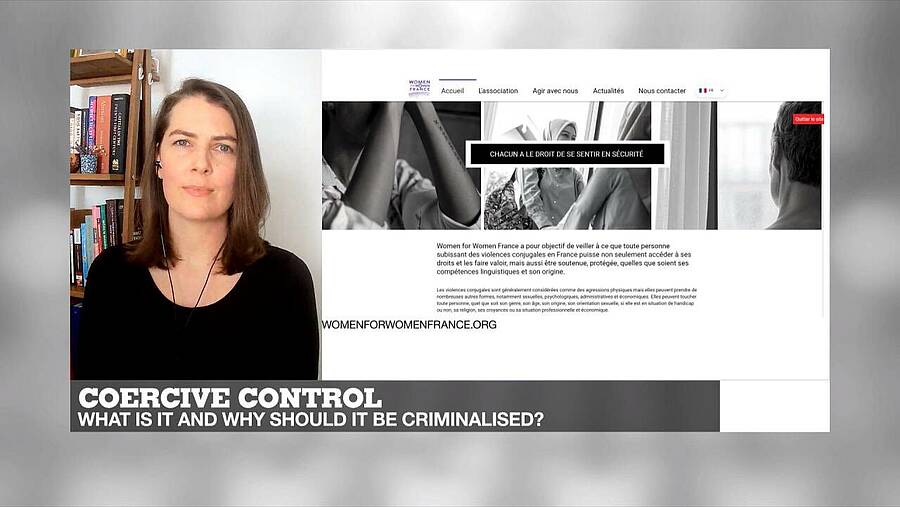Women for Women France (WFWF) joined renowned journalist Annette Young for an interview on the program The 51 Percent on France 24 to discuss coercive control, a form of domestic abuse gaining recognition as states around the world move to criminalise it.
McGrath said: “We’re finally talking about domestic violence, but we are still talking about it in that old 1950’s way: man comes home from work, beats wife. But we know the realities are far greater than that.”
A growing body of evidence shows that rather than discrete incidents of violence, domestic abuse is often an ongoing campaign of terror and oppression, incorporating psychological, physical, sexual, emotional, administrative, and/or economic abuse. Known as coercive control, this form of abuse aims to make a partner or ex-partner dependent, subordinate, and to deprive or restrict their freedom of action.
While awareness of coercive control is growing in France, it is sometimes thought of as being interchangeable with “l’emprise” and/or psychological violence despite the differences in meaning.
Internationally, the move to criminalise has gained momentum as research continues to uncover the dangers of coercive control.
“Experts are determining more and more that coercive control is a leading indicator on whether abuse will end in intimate partner homicide,” McGrath said.
An Australian report published data in 2020 revealing that of 112 cases of intimate partner homicide, 111 involved coercive control.
When asked about France’s response to adapting laws to reflect the reality of domestic violence, McGrath said: “France was a leader in domestic violence, it was one of the first to criminalise psychological violence in an intimate partner context. Although awareness of coercive control has yet to take off here in France, I believe France will come around and criminalise this type of behaviour.”
In 2018, Scotland introduced the most progressive coercive control legislation in the world, and has since recorded over 1000 criminal charges. Experts in domestic violence say the laws have improved the situation of victims.
Women for Women France is an NGO that aims to assist foreign-born people facing domestic violence in France. McGrath noted that legislating against coercive control in France would help all victims of domestic violence, but the issue is particularly relevant for foreign-born victims. “A foreign-born person who is subjected to domestic violence… in France or in any country, is already more vulnerable.”
McGrath said that geographical isolation from family and friends, as well as visa dependency and the ability for it to be used by a perpetrator to threaten and manipulate, are two factors that can make this demographic more vulnerable to coercive control.
Legislation on coercive control and judicial officer training programmes must take into account the potential impacts on marginalised communities, which face over-policing and racial profiling in many countries. Language barriers could lead to misidentification of perpetrators and create difficulties for police to understand the situation.
Watch the full interview here.
